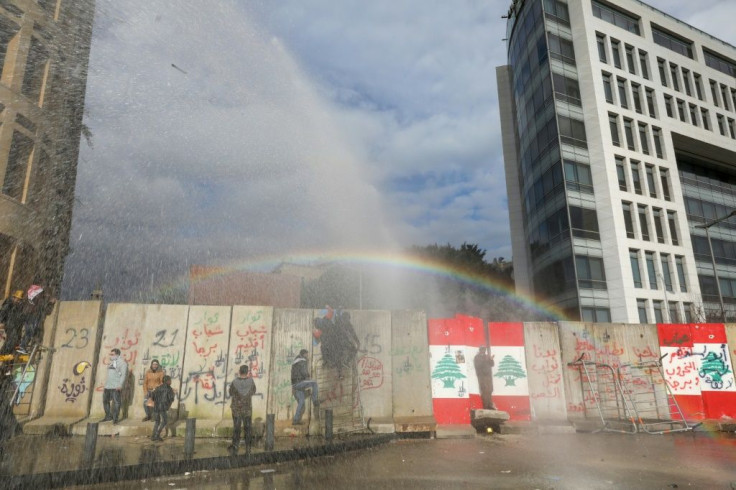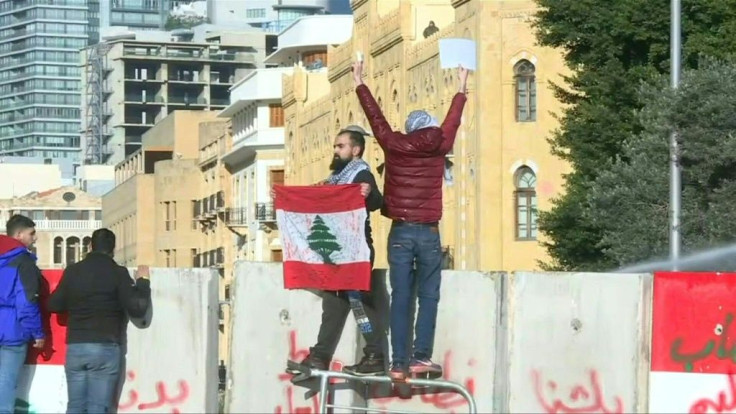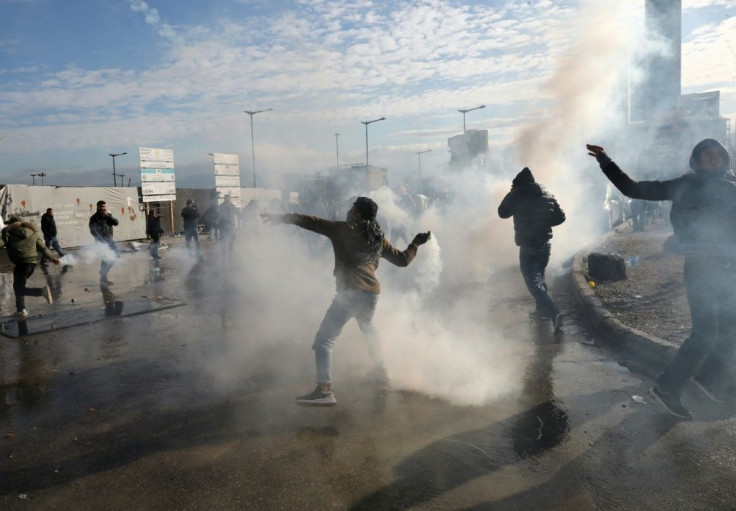Lebanon Parliament Backs New Govt In Confidence Vote Amid Protests

Lebanon's parliament on Tuesday backed the cabinet and programme of incoming Prime Minister Hassan Diab in a confidence vote held despite attempts by protesters to block it.
Parliament Speaker Nabih Berri congratulated lawmakers who sat through an eight-hour session before 63 out of 84 MPs present voted to back an administration which now faces one of the worst crises in the county's recent history.
Protesters earlier clashed outside with security forces who used teargas and water cannon to disperse them.
The Red Cross said a total of 373 people were treated for teargas exposure and other injuries, including 45 who were hospitalised.
New premier Diab, a little-known academic and former education minister, was tasked with forming a government in December after mass rallies against official corruption and economic woes forced premier Saad Hariri to resign.
But more than three months on, angry demonstrators charge that the new cabinet fails to address their demands and won't be able to rescue Lebanon's ailing economy.
Before the session started in an area cordoned off by riot police and soldiers, protesters mobbed and threw water bottles at the tinted-glass vehicles of lawmakers in a bid to stop them reaching parliament.

But enough lawmakers reached the chamber to make the vote valid.
One member of parliament turned up with a black eye, following a brief trip to hospital after he was wounded trying to reach the chamber.

Earlier, security forces had clashed with demonstrators who had hurled rocks over blast walls erected to block off roads leading to parliament.
Human Rights Watch condemned the use of force against demonstrators.
"Security forces were throwing tear gas and beating people up" said Aya Majzoub, Lebanon researcher at Human Rights Watch.

Demonstrators draped in Lebanese flags and chanting "no confidence" had started gathering early in the morning before parliamentarians were set to arrive for the vote.
"I'm here to say 'no confidence' in the government because the way it was formed shows that it cannot be trusted," said one protester who gave her name as Carole.
Lebanon's cross-sectarian protest movement has pushed for the wholesale removal of a hereditary political elite widely seen as corrupt and incompetent.
While Diab has vowed to carry the hopes of the protesters, portfolios were shared out through the same partisan and sectarian gamesmanship that has been the trademark of Lebanon's political class since the end of its 15-year civil war in 1990.

Inside parliament, Diab said his cabinet was determined to draw up an emergency rescue plan for the country by the end of the month.
With the economy badly hit, he warned that "we could reach a complete collapse from which it will be hard -- if not near impossible -- to get out".
The international community has pledged more than $11 billion in desperately needed financial aid, but made it conditional on the speedy implementation of economic reforms.
But in the street, 26-year-old protester Christopher said he had little faith in the new leadership.
"We are here to reject Diab's government and to say that the Lebanese people have no confidence in it -- even if lawmakers vote to support it," he said.
He said the new ministers may appear qualified, but still depend on "the parties that destroyed the country".
Some lawmakers had spent the night in parliament to thwart protesters, who have successfully prevented several previous sessions since they launched their campaign in October.
Their protests spell the biggest popular challenge to the power-sharing system that emerged from the 1975-1990 civil war.
Demonstrators on Tuesday travelled to Beirut from as far as Sidon, Tripoli and Tyre.
Lebanon is also on the brink of defaulting on its sovereign debt and the impact is being felt by all social classes, with tough restrictions on cash withdrawals and a steep de-facto devaluation of the national currency.
The World Bank has warned that if no solution is found swiftly to the crisis, the poverty rate may shoot up from a third to half of the population.
One placard at Tuesday's protest carried a sarcastic message: "Of course we are confident -- that they will help the banks to the detriment of the people."
aa-rh/ah-ho/par
© Copyright AFP 2024. All rights reserved.





















